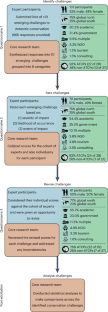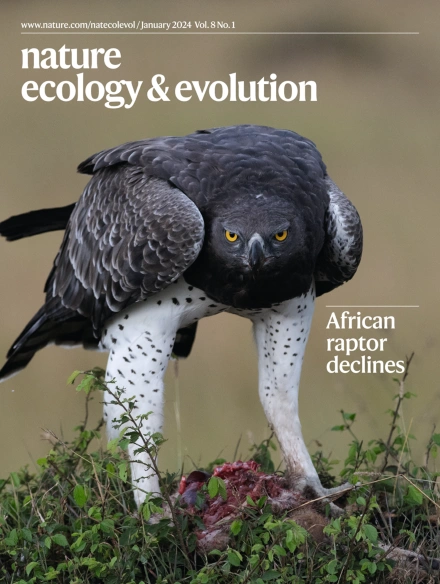南极保护面临的新威胁
IF 13.9
1区 生物学
Q1 ECOLOGY
引用次数: 0
摘要
南极洲长期以来被认为是一个环境保护区,现在面临着加速、复杂和相互关联的保护挑战。非洲大陆幅员辽阔,地理位置偏远,在理解和预测这些威胁方面存在很大的不确定性。在这里,我们使用战略预见技术,综合了来自42个国家的131名专家的全球视野。我们在六个主题类别中确定了十个新出现的保护挑战。关键问题包括极端降水、新出现的动物病原体、人类流行病、安全威胁、《南极条约》缔约国之间合作减少以及潜在的农业扩张。其中一些挑战源于持久的潜在驱动因素,揭示了长期的过程如何引起新的和日益尖锐的保护问题。另一些则受到全球动荡的驱动,在该地区没有历史先例,但日益制约决策和国际协调。这一水平扫描显示,《南极条约》系统应对这些挑战的能力存在很大局限性,强调有必要重新评估现有的治理机制,以保护南极洲独特的生态系统及其在全球气候系统中的重要作用。本文章由计算机程序翻译,如有差异,请以英文原文为准。


Emerging threats to Antarctic conservation
Antarctica, long considered an environmental sanctuary, now confronts accelerating, complex and inter-related conservation challenges. The vast size and remote location of the continent introduce substantial uncertainty in understanding and predicting these threats. Here, using strategic foresight techniques, we synthesized insights from a global horizon scan with 131 experts from 42 countries. We identified ten emerging conservation challenges across six thematic categories. Key issues included extreme precipitation, emerging animal pathogens, human pandemics, security threats, reduced cooperation among Antarctic Treaty parties and potential agricultural expansion. Several of these challenges stem from persistent underlying drivers, revealing how longstanding processes are giving rise to new and increasingly acute conservation concerns. Others, driven by global disruptions, have no historical precedent in the region but increasingly constrain decision-making and international coordination. This horizon scan reveals substantial limitations in the ability of the Antarctic Treaty system to address these challenges, underscoring the need to reassess existing governance mechanisms to protect the unique ecosystems of Antarctica and its vital role in the global climate system. A horizon scan of international respondents identifies and discusses ten developing challenges in Antarctic conservation, revealing an increased emphasis on challenges related to governance, geopolitics and economics compared to a similar scan from 2012.
求助全文
通过发布文献求助,成功后即可免费获取论文全文。
去求助
来源期刊

Nature ecology & evolution
Agricultural and Biological Sciences-Ecology, Evolution, Behavior and Systematics
CiteScore
22.20
自引率
2.40%
发文量
282
期刊介绍:
Nature Ecology & Evolution is interested in the full spectrum of ecological and evolutionary biology, encompassing approaches at the molecular, organismal, population, community and ecosystem levels, as well as relevant parts of the social sciences. Nature Ecology & Evolution provides a place where all researchers and policymakers interested in all aspects of life's diversity can come together to learn about the most accomplished and significant advances in the field and to discuss topical issues. An online-only monthly journal, our broad scope ensures that the research published reaches the widest possible audience of scientists.
 求助内容:
求助内容: 应助结果提醒方式:
应助结果提醒方式:


